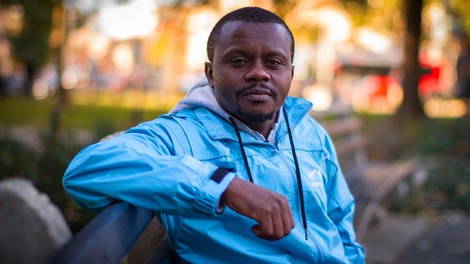Your podcast discovery platform
Curious minds select the most fascinating podcasts from around the world. Discover hand-piqd audio recommendations on your favorite topics.

piqer for: Global finds Doing Good
Helen Morgan is a writer and editor with a background in human rights and migration issues. She is an associate editor at Devex, the media platform for the global development community, focusing on multimedia storytelling and video production for thematic and issue-focused digital series. Currently based in Barcelona, Spain, she has previously written for a variety of international publications while living and working in Buenos Aires, New York and Shanghai.
Bringing Communities Together With A Soccer Ball
This year's World Refugee Day coincided with a particularly dark week of news - from coverage of appalling governmental immigration policies to the reported rise of xenophobia.
But there were some alternative stories resurfacing that demonstrate the opposition to these trends, like this piece on the impact of grassroots initiatives that help to bridge divides.When Robert Hakiza was a child growing up in the Democratic Republic of Congo, he remembers playing football with other children as a way of bringing everyone together - no matter what their background. Years later, after he and his family fled, he was living in Uganda in a small apartment with exiled neighbours. He noticed ruptures between people from different nationalities and tribes and decided that one way to help dissolve those tensions, was football.
Hakiza started a tournament with refugees in the Kampala community in 2008.
"We wanted to try to create the same situation as before, as it used to be before the war" — people playing together regardless of their identities. Congolese, Rwandans, Burundians and Somalis signed up, forming eight teams.
It was so well received, he founded the Young African Refugees for Integral Development (otherwise known as YARID) with friends later that year. The founders began by trying to get people to play football together. When they needed money, participants would pitch in to help buy supplies. A single team made up of diverse nationalities eventually formed and started competing in a football league. Hakiza says that they have worked with over 3,500 refugees.
Today, YARID's programs include sports for development, job preparation and placement, and a centre for technology and innovation. English classes and other initiatives formed after soccer games to overcome language barriers. It offers women vocational training and gender-based violence awareness classes. In 2016, the organisation received a $100,000 Ockenden Prize for a program that teaches women self-sufficiency.
